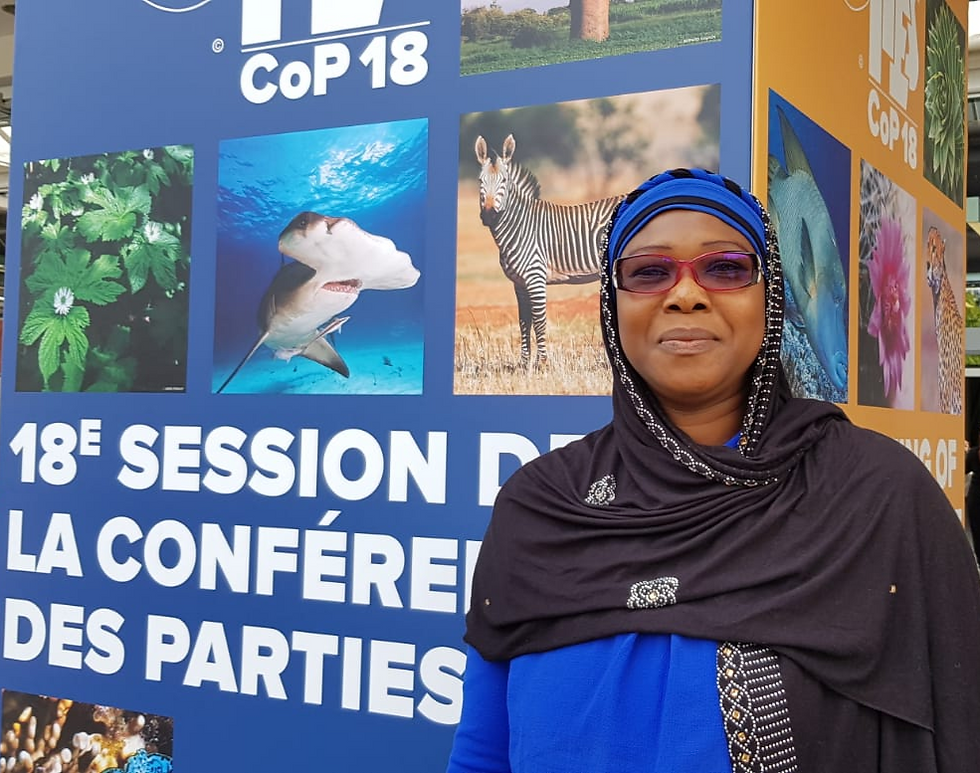Our EPI friend of the month is Salimata Kone, who is one of Côte d’Ivoire’s senior conservationists, as Director of Wildlife in the Ministry of Water and Forests.

Where did you grow up and how did you get involved in conservation?
I grew up in the village of Dikodougou in the north of Côte d’Ivoire. I was often out in the bush with my parents– my father had a small farm. We heard stories about elephants, but I never saw one. At university I was interested in wildlife, and started working in conservation afterwards. That’s when I saw my first elephant.
What is the status of elephants in Côte d’Ivoire today?
The number of elephants in Côte d’Ivoire is much reduced. Even in the 1990s we estimate there were more than 1,000 elephants in the country. Today we estimate about 500. But in recent years there has been a fall in poaching. In 2018, we did not record a single elephant killed by poachers. There is more interest in the country in saving our elephants.
And the biggest threat to your elephants– is it the loss of habitat or poaching?
Without doubt, it is loss of habitat. Our economy is based on traditional agriculture. This is destroying wildlife habitat. Most of our forest reserves are infiltrated by peasant farmers. Because of this, in the north and east, we’ve seen elephants migrate to Burkina Faso and Ghana, where there are more protected spaces.
Is Ivory Coast connected to the international trafficking of ivory?
Yes, no country can escape this. We have made some big seizures in recent years. We do not believe the ivory came from our elephants. Côte d'Ivoire is used as a transit country.
I’m talking to you at the CITES conference. Will you be leaving Geneva depressed or encouraged about the future of elephants?
I’m not a pessimistic person. I feel that all the African countries here wish to protect their elephants, but methods differ from region to region. We’ve been able to talk frankly about the ivory trade. I feel Africa will find the right solutions to deal with this.

Comments